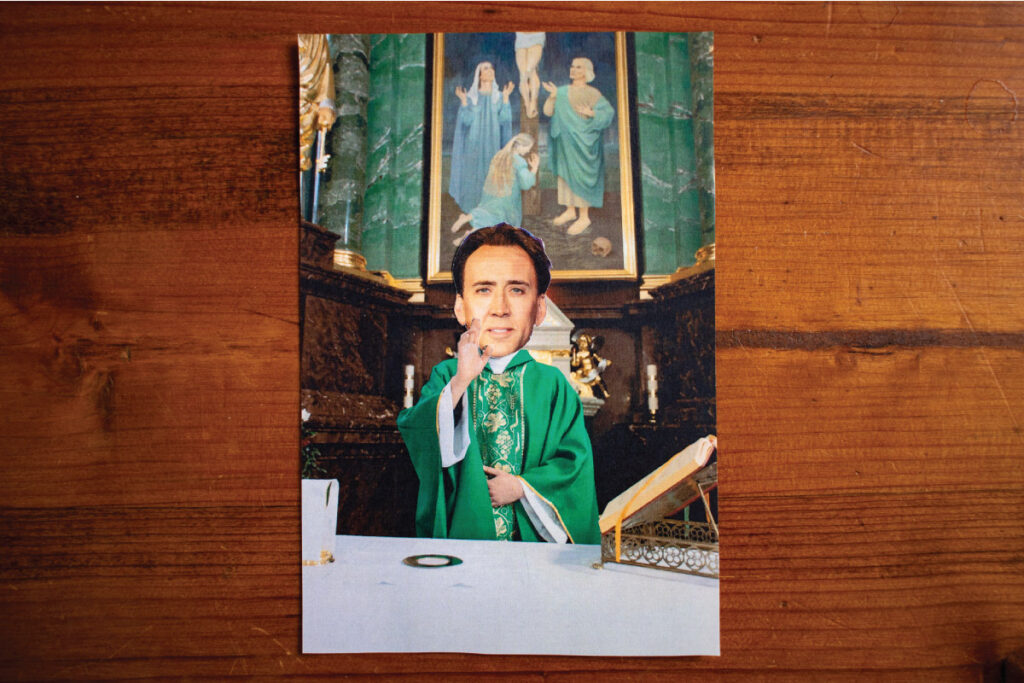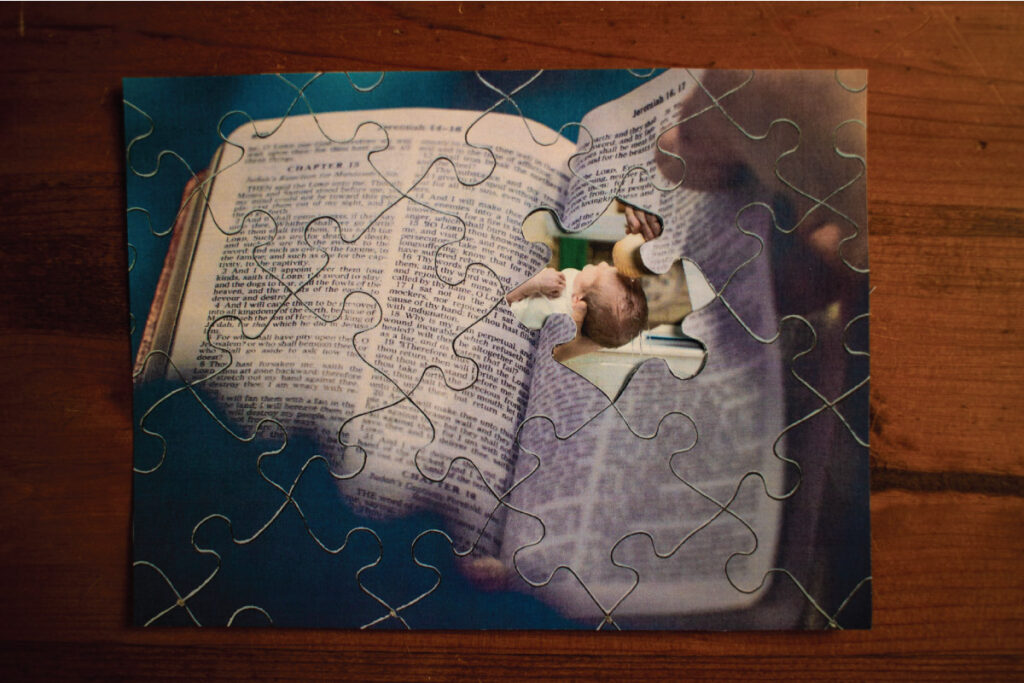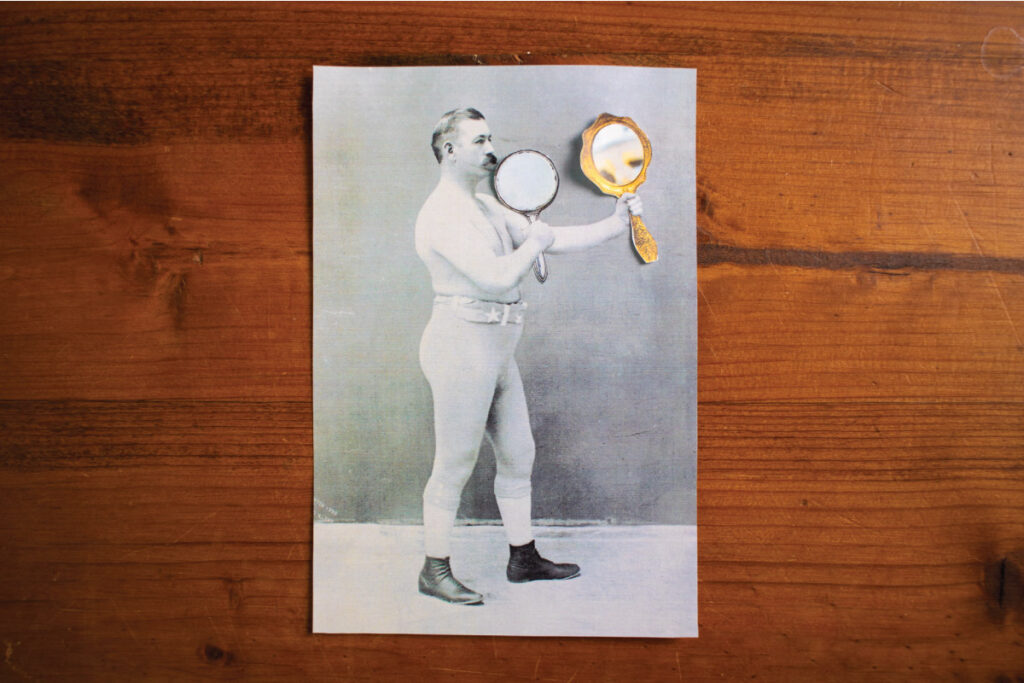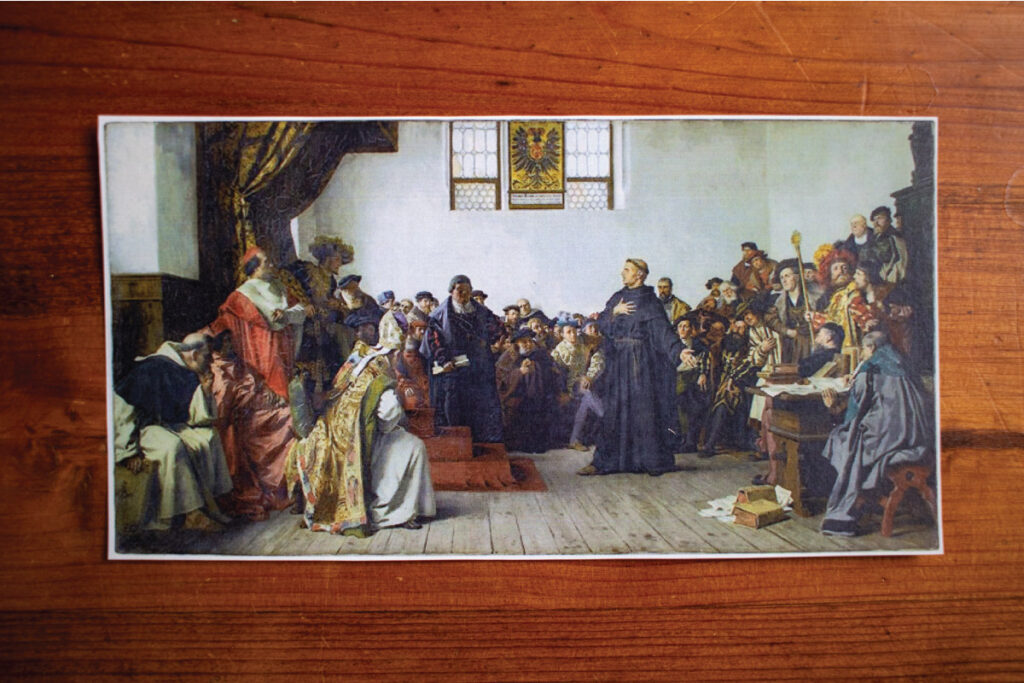
Share this Post

Now concerning food offered to idols: we know that “all of us possess knowledge.” This “knowledge” puffs up, but love builds up.
1 Corinthians 8:1
THE UNBEARABLE WEIGHT OF HAVING ALL THE ANSWERS
I have a sufficiently firm grasp of the English language. Quite often, I write marketing copy that is seen and heard by thousands of people. (…at my day job. This blog has nowhere near that kind of following!) I can now best my mom in the word game Boggle nearly every time we contend—something I had been aspiring to since I was old enough to spell 3 letter words. I endeavor to employ a larger than average vocabulary in my day-to-day. I love unusual or antiquated expressions and even dally in the facetious diction of Shakespeare.

But there’s a problem with all this knowledge. It’s easy to have a big head about it. And even easier to look like a pompous jerk.
I know a few people like that. I suppose, at times, I can be one of them. These people can get so caught up in their “rightness”, that they forget love and tact. They become so sure of themselves that the whole world fades to black and white—with themselves as the sole arbiter of their own color theory.
We do this in the church more often than we’d like to admit. We as Lutherans, are no exception. Those of us with Bible college or seminary educations are perhaps more guilty than most.
NO MISSING PIECES
Since we as Lutherans have such a robust, well-developed theology, it’s tempting to talk with certainty about things we have no business talking about with absolute certainty. We believe the puzzle pieces of doctrine are so distinctly shaped that we often fill in the missing pieces with our own garage-workshopped replacements. Or maybe we didn’t make these extra puzzle pieces ourselves, but our predecessors did. Some of these pieces have been around so long, and have such a similar patina to the originals, that they’ve become nigh impossible to identify. That is, until we look at the puzzle’s box and count the pieces—finally realizing that the holes in the puzzle are not defects that needed filling.
The solution to this fatal flaw is the original, unaltered puzzle that you can find at just about any estate sale. It doesn’t have any of the mass-produced aftermarket pieces. It wasn’t missing any pieces in the first place. It’s just a different shape of puzzle than we expected. Maybe different than we wanted.

I’m of course talking about the Bible—God’s Holy Word revealed to us. It’s sufficient, but not exhaustive. It’s clear about some things—and less clear about others. And since we believe it’s God-inspired, we have to conclude that some things inside it were designed to be less clear than others—perhaps because they are less important. (I know, we Lutherans like to believe everything is the most important.)
What I’m trying to get at with my silly analogy is this: We err when our doctrine steps beyond scripture. We err when we allow our traditions to completely define our doctrine. We err when we bow down to the church systems of the past purely out of traditionalism. If we Lutherans say we believe in sola scriptura, we must be diligent to not add to the requirements of the Christian life and the weekly church gathering, lest we inadvertently throw up roadblocks in front of the Gospel.
This doesn’t mean we cannot make rules, recommendations, and processes for the sake of order, but it’s vital we label them as such, and not misconstrue them to be core issues taught by scripture.
KNIVES MIRRORS OUT
Now, I see you squirming in your seat because of what you think I mean—what you think I want to purge. You’re readying your dog-eared tomes to throw at me. Poising your label maker over my forehead with the letters h-e-r-e-t-i-c already punched in. Go for it. I stopped looking for your approval when I observed your lack of concern for the lost. You’ve overplayed your hand. You are the person that needs to hear this.
At this point, we could easily let ourselves off the hook by pointing the finger. After all, other flavors of Christianity have worse problems, right? We could derail this conversation with the legalism of the Baptists, or the logical fallacies of the Calvinists, but I want us to turn our eyes inward. There’s a log that needs attention in our own Lutheran eye. Maybe, if we can exercise an iota of self-reflection, we could then see more clearly to remove the speck from our Baptist and Calvinist brothers’ eyes.
I know, it’s hard. As Lutherans we’ve lived our whole lives trying to justify our existence. Defensiveness is part of our DNA. After all, one doesn’t reform the Catholic church with his fists in his pockets.
Okay, I’ll play along. We can fight. Crank up your Bach walk-out music, and enter the ring. My only requirement: I want a mirror in each of those fists.

THE DIVINE CIRCUS
Let’s talk about the church service. The way we turn up our nose at people who do church differently is wildly inappropriate. Tout historic church tradition all you like and I’ll raise you one. Acts and the Epistles give us an ample template for what a meeting of believers should look like. I humbly suggest we go with their description instead of the additional rules of the Divine Liturgy Pharisees.
Let me clarify: traditions are great. They help teach, illustrate, reinforce, and even embody our doctrine. But they’re also subjective. They convey a truth within a certain context. Some seem to be more timeless—and some are not worth continuing because the context was lost along the way.
Traditions may contribute positively to faith, as long as they are not mislabeled as rules. While it’s wrong to be timid about that on which scripture is clear, it’s just as wrong to be confident on things about which scripture itself is silent or un-clear.
The worst defense of the Divine Service is that church itself is supposed to feel otherworldly. The same elitists use this word in their critique of contextualized Christianity as too mundane.
Otherworldly you say? A circus also feels otherworldly. A good theater performance feels otherworldly. A Halloween costume party feels otherworldly. Did a bunch of fisherman following a Rabbi around the countryside feel otherworldly? The miracles were certainly impressive. The rabbi undoubtedly possessed unworldly wisdom. But the aesthetic was surprisingly mundane. So mundane that the Jews completely overlooked him as the promised Messiah. If Jesus had built a new physical temple with stained glass windows, a gilded communion rail, and a baptismal font in the entryway, perhaps then the Jews would have recognized Jesus for who he is. Yes, I am quite sure that otherworldliness is the best tactic for building the Church.

Let’s pause for a moment. Lest you’re tempted to flip the mirrors in your fists around at me, don’t bother. I brought my own. I realize it sounds a whole lot like I am turning up my nose at the way YOU do church. While I do have significant concerns about reformation-costume-party church, it is a valid way to do church that I cannot totally discount from scripture. I am concerned about the pursuit of nostalgia over scripture, but I can also attend a liturgical high-church service and allow my attention to be focused upward.
I want to be clear, I am not saying that low church is more right than high church. I only request that we engage in humble dialogue on our own two feet, having dismounted our high horses and circus ponies.
The right way to do church is Gospel-centric church. The right way to do church is in a way that the congregation understands. The right way to do church is to look at Scripture. After that, there is freedom in Christ. After that, there are many methods, tactics, programs, rituals, and traditions that are all acceptable—and even helpful—in pursuing those ends.
For those who are interested, I plan to make a more robust defense of culturally-contextualized church in future posts.
Okay fellow Lutherans, not breaking a sweat yet, I see. You’re also glaring at me instead of looking at those mirrors in your fists. Don’t make me do it…
BAPTISM ████████ THEREFORE SAVES YOU, ██████████████
Yes. I just went there—and not to pat you and I on the back.
This is an example of a passage we Lutherans dig our heals in on for the sake of winning an argument—more than for the sake of truth. Too often we tend to emphasize division for the childish sake of reaffirming our own uniqueness as Lutherans. When, in fact, we have way more in common with Baptists than we have unique.
…because they formerly did not obey, when God’s patience waited in the days of Noah, while the ark was being prepared, in which a few, that is, eight persons, were brought safely through water. Baptism, which corresponds to this, now saves you, not as a removal of dirt from the body but as an appeal to God for a good conscience, through the resurrection of Jesus Christ,
1 Peter 3:20-21
We Lutherans love to use half of verse 20 in isolation as a “proof” text for efficacious baptism—but more importantly, this verse is used to accomplish the goal of separating ourselves from Baptists.
What can we actually conclude from these verses? What are these verses saying, and what are they not saying?
- Baptism in some qualified (not as a…) sense is part of salvation.
- Baptism itself functions as a salvation analogy related to the great flood and the ark.
- Baptism involves asking God to remove our guilt and shame in light of Christ’s finished work on the cross.
What does water by itself do for us spiritually? Nothing. It’s just water.
What does the Word by itself do? It contains the Gospel by which we are saved.
What does the Word with the water do? It saves us…because the Word is there, and because it’s accompanied by an appeal to God for a clean conscience—aka repentance. Our conclusions about what exactly the role of the water is when connected to the Word are, if we’re honest, pretty speculative.
So, we Lutherans use a verse that all Christians should be able agree on the base meaning of, and we twist it into a way to divide us, by saying more than the verse is actually saying. Shame on us.
That is not to say our doctrinal particulars on baptism are all merely semantics, but we tend to exaggerate the differences because we love being Lutheran even more than we love being followers of Christ. And above both, we love being right.
DIET OF WORMS
The Diet of Worms was the assembly before which Martin Luther was asked to recant his writings that critiqued the Roman Catholic Church. After his refusal, he was branded a heretic.

There he famously said the statement that I will use as my own closing remarks. I do not consider myself to be a reformer the likes of Luther. That would be pretty grandiose and self-important of me. He was dealing with a much more blatant disregard for the Gospel. The liturgical Lutherans of today have more of a soft-disregard, but they’re not entirely dissimilar.
My conscience is bound by scripture. I cannot add to it. I cannot require more of believers than scripture itself requires. I cannot turn unclear concepts from scripture into core doctrines. I cannot feign certainty about things which scripture has not revealed. I ask that you stand there with me.
“Unless I am convinced by Scripture and plain reason—I do not accept the authority of the popes and councils, for they have contradicted each other—my conscience is captive to the Word of God. I cannot and I will not recant anything, for to go against conscience is neither right nor safe.”
Martin Luther
Further Reading from Elsewhere:
Share this Post
